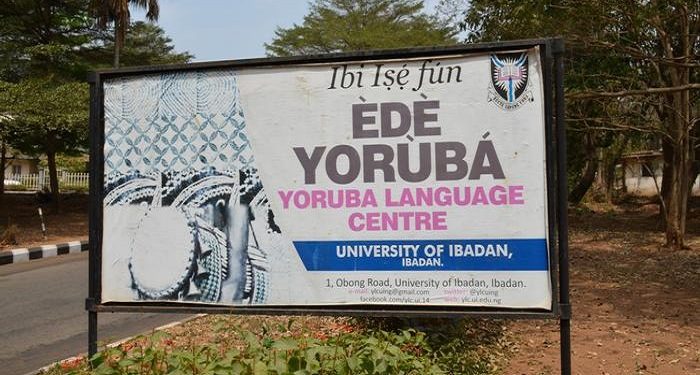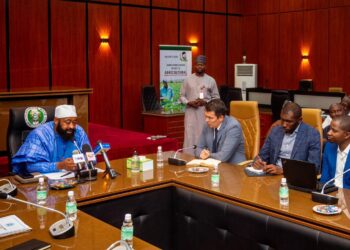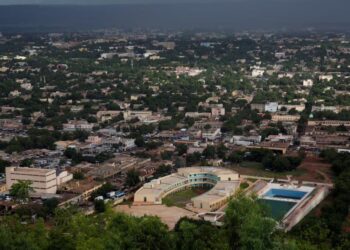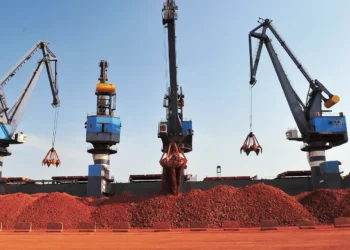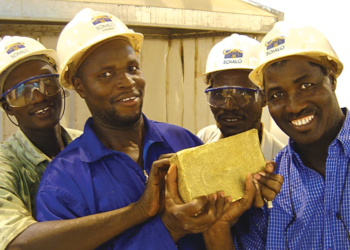Since the inauguration of the new Lagos Yoruba language policy officially proclaimed by the immediate former state governor, Akinwunmi Ambode, the Yoruba language has assumed an unprecedented status of lingua franca in schools throughout the state. Both public and private schools have so far made indefatigable efforts to maintain the singing of the national anthem in Yoruba, as well as have Wednesdays as special days on which classes are held in the Yoruba language.
A considerable endeavor is also being made to translate respective subject textbooks into Yoruba all of which are intended to enhance students’ academic performance as well as preserve their first language which has emerged with the danger of decline and death. To ensure that this pivotal goal is efficiently achieved, secondary school students in the state have been obliged to obtain an average credit cut off mark in Yoruba in their Senior School Certificate Examination (SSCE) in addition to other core and specialized subjects to be passed as a requirement for securing admissions into tertiary institutions. This progressive change, which has emerged in Lagos state, is envisaged to circulate entire Southwestern Nigeria very soon.
As a language, Yoruba constitutes a prominent member of the Benue-Congo, an affiliate of the broad Niger-Congo language family. This language, which occupies the status of a Nigerian quasi-national language along with Hausa and Igbo, is extensively used by a population of 40 million speakers who inhabit the South-Western part of Nigeria and some other West African countries, namely Benin Republic, Ivory Coast, Togo, and Sierra Leone, in addition to Non-African countries such as Cuba, Brazil, United Kingdoms, United States of America and many others (Sennen, 2019).
According to Bolanle (2012), Yoruba comprises multitudinous dialectical varieties with differing degrees of mutual intelligibility the most prominent of which include Egba, Ekiti, Onko, Ibolo, Ondo, Iyagba, Ijebu, Owe, Ikale, Igbomina, Igala, Oyo to mention but few. Of all these varieties, the Oyo dialect represents the major standard for an average Yoruba user both in their speaking and writing communications. For hundreds of years, Yoruba was officially used in the ancient Yoruba empires in a whole lot of life spectrums since it was the language of courts, ceremonial events, business enterprises, and social interactions among the people of the Old Oyo Empire.
Nevertheless, the emergence of English traders in Nigeria followed by the influx of missionaries and colonialists marked the beginning of a decline in the history of the Yoruba language. From the outset, the trading activities between the Yoruba merchants and their English counterparts led the former to a challenging situation that entailed a quick mastery of the English language for ease of interactions between the two parties. As time progressed, the ensuing colonial and missionary activities in the country further intensified the need of an average Nigerian to efficaciously articulate themselves in the English language which later assumed the position of the national lingua franca.
However, in spite of some benefits accrue to the installation of English as the Nigerian official language, a number of detrimental effects are found palpable in the society one of which is a considerable decline in the status of the Yoruba language. Corroborative evidence of this gradual language death is the inadequate communication proficiency among the average Yoruba user. An instance of this is a persistent recourse to English words in daily conversations among Yoruba-speaking interlocutors in a wide variety of contexts.
In his article entitled “A Sociolinguistic Study of the Effects of Yoruba-English Code-Mixing on the Yoruba Language”, Oluwaseun (2018) argues that it is not only the massive demise of the speakers of a particular language that leads to its extinction, but speakers themselves might also inadvertently obliterate their own language when they frequently exchange words in their mother tongue for their equivalents in English leading them to hardly remember the existence of those words in their native language. This phenomenon is known as code-switching.
Hence, it becomes imperative, at this juncture, to throw some light on the concept of code-switching given its pertinence with the issue being discussed. Mabule (2015) describes code-switching as the use of two or more languages in an endeavor to execute a speech act. Indubitably, sociolinguists are not unanimous in regard to a uniform definition of code-switching leading to the emergence of three approaches found in the course of reading through literature. Some authors opine that code-switching represents all forms of alternations made between two languages (Auer in 1995; Mabule, 2015). Conversely, some linguistics confine code-switching to intra-sentential language alternations, while inter-sentential switches are considered to be another entity, namely code-mixing (Kachru, 1983; Sridhar & Sridhar 1980). Whereas, Muysken (2000) considers code-mixing as an umbrella term covering code-switching, which according to him is the intra-sentential, and borrowing, which he refers to as inter-sentential.
Code-switching contends as a seemingly inexorable sociolinguistic phenomenon for it serves speakers some benefits; yet it can be problematic when it begins to negatively affect the user’s communicative competence in either or both of the languages involved (Bello, 2007; Oluwaseun, 2018). On this note, the reality of inside-home conversations among average Yoruba people – especially the well-educated ones – shows that the use of the English language is prioritized over the Yoruba language. Many parents who ought to have shouldered the responsibility of exhorting their children towards effective use of this language in their daily conversations turn out to be the ones advocating blindly for English in various and sundry. This phenomenon of adherence to the use of English in indoor conversations transcends to the outdoor communicative events when Yoruba speakers who tend to be conservative are demeaned merely because of being fully committed to communicating in the standard Yoruba and their defying attitude towards resorting to English words in their utterances.
Another debilitating factor affecting the growth of Yoruba is the inadequate provision made by the education policy towards an efficient and life-long teaching and learning of Yoruba and the other two Nigerian quasi-official languages. According to the National Education Policy (2013), the language policy on education provides for the use of learners’ mother tongues, the language of the immediate community, or any of the major Nigerian languages, namely Hausa, Igbo, and Yoruba, as mediums of instruction in the first three years of primary education, while English is taught as a separate subject.
However, from the 4th year of primary school until the end of the junior secondary school, the English language becomes the main vehicle through which all subjects are taught plus its status as a compulsory subject, while a language of immediate environment/a major Nigerian language and French are taught as core language subjects. Nevertheless, no substantial provision is made for continuous teaching and learning of Yoruba language from the senior secondary school level onward whereby students are expected to develop a holistic understanding of language necessary for them to be eloquent speakers and writers.
By and large, as this language policy is being implemented in Lagos state, it is of dire necessity on the part of other South-western states to exert their utmost efforts in resuscitating the language as well by enforcing similar language policy on their schools and colleges. In addition to that, individual Yoruba native speakers should be incessantly enlightened – through a variety of means – about the fact that preservation of their identity, culture, and heritage lies in their success in maintaining the existence of their language, and that any lackadaisical attitude towards these entities will not but definitely culminate in the loss of their identity.
References
Sennen (2019). Calls to use Nigerian languages are going unheard. The conversation. http://theconversation.com/calls-to-use-nigerian-languages-at-school-are-going-unheard-126785
Auer (1995). The pragmatics of code-switching: A sequential approach. In L. MILROY & P. MUYSKEN (eds.), One speaker Two Languages: Crossdisciplinary Perspectives on Code-switching. New York: Cambridge University Press. 115-135.
Oluwaseun (2018). A Sociolinguistic Study of The Effects of Yoruba-English Code-mixing on The Yoruba Language. Jurnal Arbitrer. 5(1), 23-30.
Bello (2007). Code-mixing or Code mix-up: A sociolinguistic study of Semi educated Yoruba/ English bilinguals. In D. Adeyanju, Sociolinguistics in the Nigerian Context. Ile ife: Obafemi Awolowo University Press.
Mabule (2015). What is this? Is It Code Switching, Code Mixing or Language Alternating? Journal of Educational and Social Research. 5(1), 339-350.
Kachru (1983). The Indianization of English: The English language in India. New Delhi: Oxford University Press.
Sridhar and Sridhar (1980). The syntax and psycholinguistics of bilingual code-mixing Canadian Journal of Psychology. 34, 407-16.
Muysken (2000). Bilingual Speech: a typology of code-mixing. Cambrideg University Press.
Bolanle (2012). A Comparative Phonology of the Olùkùmi, Igala, Owe and Yoruba Languages. http://llacan.vjf.cnrs.fr/fichiers/nigercongo/fichiers/arokoyo_paper.pdf















































